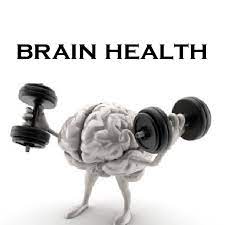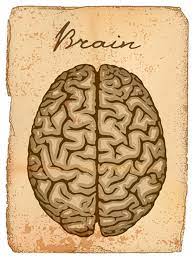Supporting Brain Health and Cognition
October 26, 2022
Our brain health is impacted by key areas within our mind that govern our cognitive, motor, emotional and tactile functions. Cognitive functioning consists of our ability to think, reason, learn, and recall information, whereas, motor capacity pertains to our control of movement and balance. Our emotional function refers to the process of perceiving and responding to emotions, and tactile activity involves feelings and actions elicited by touch, such as, pain, pressure and temperature.
To a certain degree it’s normal for cognition to be affected by aging. For instance, as we grow older, it’s not unusual, on occasion, to become slightly forgetful. Dementia, however, entails the loss of cognitive function which adversely affects one’s daily life activities. The course of dementia is different for each individual and the disease progresses over time. Common symptoms include memory and communication problems, disorientation, and impairments in perception, judgment, decision-making and safety awareness. As the disease advances, body control losses also occur, such as, voluntary bowel and bladder elimination and effective movement and swallowing. These manifestations lead to safety risks and the inability to live independently. Types of dementia include Alzheimer’s disease, and Lewy body and frontotemporal based dementias. Mild Cognitive Impairment (MCI) is a less severe disorder involving increased difficulty thinking or remembering in comparison to normal individuals. According to the National Institute on Aging, those with MCI are at greater risk of developing Alzheimer’s disease.
Studies have shown that genetic, environmental, and lifestyle factors can affect our cognitive health. Although we have no control over our genetic or inherited factors, research strongly suggests that practicing healthy habits enhances brain health and minimizes the risk for cognitive compromise. Study participants with greater genetic risk for dementia and an unhealthy lifestyle were almost 3 times more prone to develop dementia than those with a low genetic risk and lifestyle of good health practices. Research reported at the 2019 Alzheimer’s Association International Conference identified that the risk of Alzheimer’s dementia decreased by 60% when 4 or 5 healthy choices were integrated within one’s lifestyle versus none or only one. These measures consisted of a healthy diet, at least 150 minutes of moderate to vigorous physical exercise weekly, light to moderate alcohol use, no active smoking, and performing mentally stimulating activities on a regular basis. It was equally fascinating to learn that these practices may mitigate one’s genetic risk for Alzheimer’s disease. 
Other highlights from studies are relevant toward adopting healthy life choices. For instance, it was determined that smoking from early to middle adulthood may be linked with the development of midlife cognitive decline, and excessive alcohol intake leads to a substantially increased risk of dementia in older women. In addition, enhancing cognitive reserve or capability through education and mentally engaging activities may lower the risk of dementia among people living in areas with heightened air pollution. The Alzheimer’s Association describes cognitive reserve as the brain’s capacity to cope with the negative impact of brain damage on cognition. Studies have suggested that pollution with minute air particles can cause brain shrinkage and a higher probability of Alzheimer’s or other dementias. The University of Southern California confirmed through research that residential environments with high levels of air pollution heightened the risk for Alzheimer’s and other dementias. In its study, the additional risk to older women with higher cognitive reserve was 21% greater, whereas, a 113% enhanced risk existed for those with less reserve.
In another study, the University of California, Los Angeles, discovered that there was a reduction of brain metabolism in memory regions of the brain after only 14 days of adopting a healthier lifestyle plan. The lower metabolism suggested that the brain operated with more efficiency to complete tasks when certain actions were practiced as prescribed. These activities consisted of mind engagers, such as, crossword puzzles, memory games, and brain teasers, daily physical exercise, eating 5 small, nutritious meals a day fortified with omega-3 fats, antioxidants, and complex carbohydrates, and daily relaxation practices for the relief of stress, such as, meditation. Cortisol is a hormone released during stressful situations. High cortisol levels over an extended period can cause damage to the brain’s memory cells. Those who enacted the lifestyle strategies also had better performance in verbal fluency in comparison to the control group. Other research also indicates that frequent social interactions, adequate sleep, and learning a new skill, subject or process are important ways to foster cognitive health. 
Overall, a healthy lifestyle will help to promote wellness and prevent or minimize illness, such as hypertension, heart disease, diabetes and other chronic illnesses that often impair brain and cognitive health. If you have concerns about loss of memory or thinking skills, contact your physician regarding an evaluation. It’s also essential to have an annual examination by your physician to detect and treat any disease signs or risks early. In addition, request support, as needed, for your personal health goals. For example, physicians can provide treatment options for stress and anxiety reduction, smoking cessation, nutrition and weight control, and excessive alcohol use.
The Alzheimer’s Association is leading the U.S. Study to Protect Brain Health Through Lifestyle Intervention to Reduce Risk. This is a large-scale investigation about the effects of multiple lifestyle alterations on those at risk for developing dementia. The study is occurring in 5 states and data is anticipated in 2023. For more information or interest to participate, refer to https://alz.org/us-pointer/overview.asp
Please note due to the rapidly evolving nature of related treatment and studies, the facts and recommendations within this article may have changed since publication.




